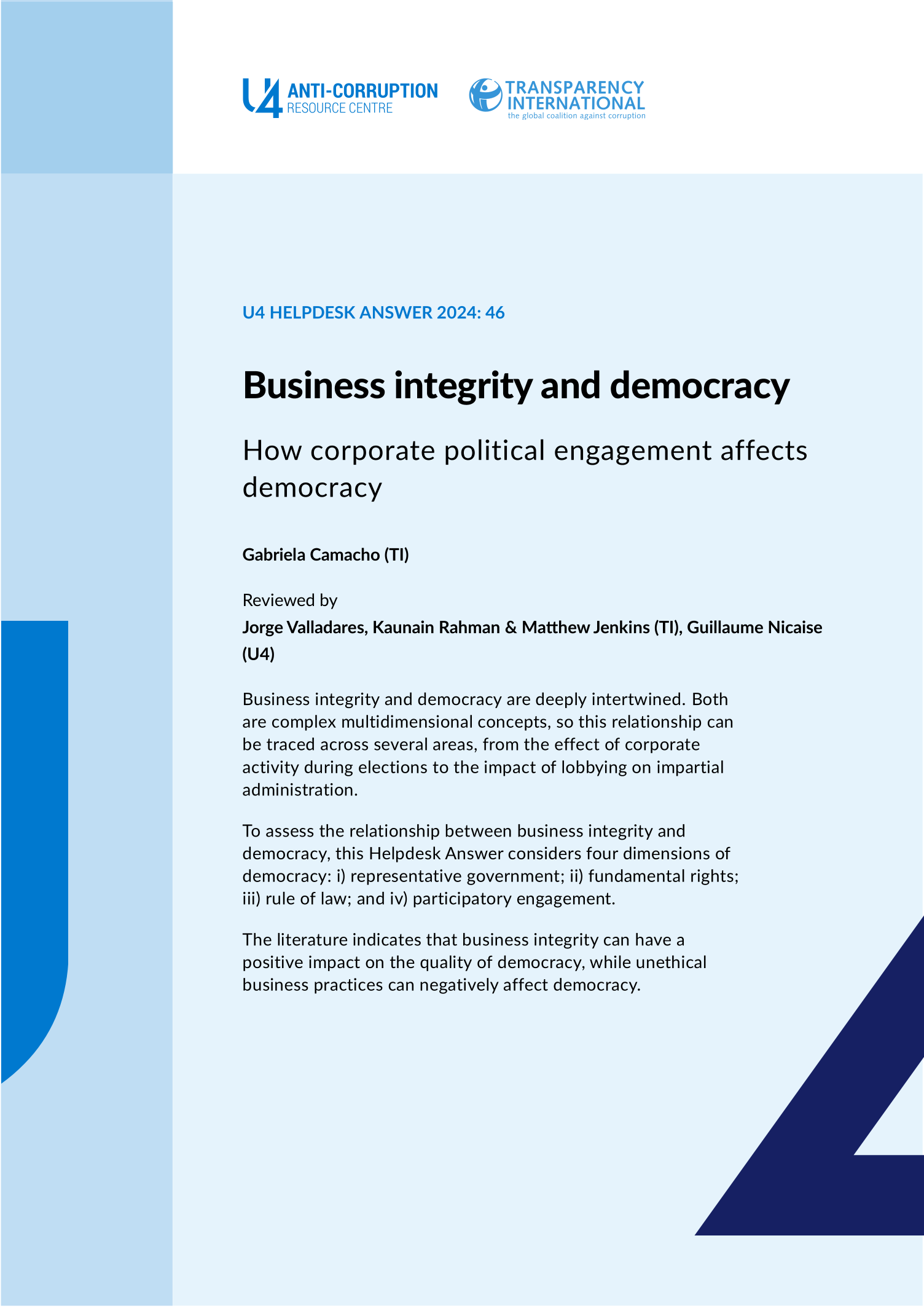Main points
- Business integrity and democracy can be mutually reinforcing. Ethical business activity and political engagement can have a positive impact on the quality of democracy (virtuous cycle), while unethical business practices and behaviours can have a negative impact on democracy (vicious cycle).
- Businesses can provide expertise to the policy process and ensure that legitimate points of view are being heard. By fostering informed policymaking, they can contribute to the quality of democracy.
- Ethical business practices can buttress the rule of law, a fundamental component of democracy, both by setting positive examples and by reducing the impact that supply-side corruption has in eroding impartial administration. As rule of law improves, democratic accountability may increase, meaning that businesses have fewer opportunities for unethical behaviour, further reinforcing democratic institutions.
- Unethical practices can entail liability and reputational risks for companies, particularly where the public grows aware of corporations’ behaviour.
- Forms of corporate political engagement that result in policy capture can lead to the (justifiable) perception that narrow interest groups control economic opportunities and that public institutions do not protect the public interest, undermining trust in democracy.


